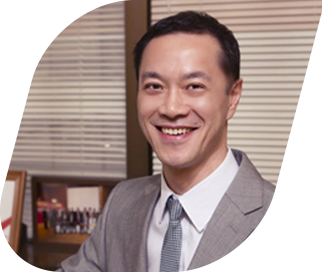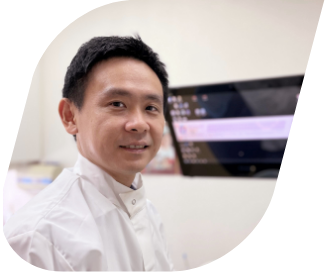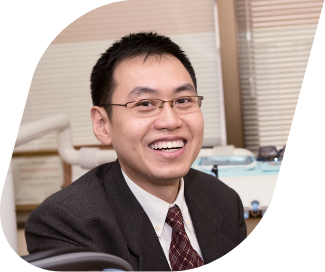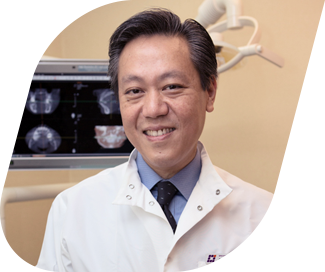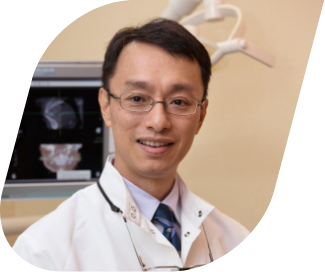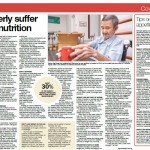Custom-made dentures in Singapore Dentistry
Comfortable, functional dentures fitted by dental specialists in Singapore.
Or call: +65 6734 9393

Custom made to your dental needs
Helping patients to eat and talk comfortably is what dental specialists do. Whether you are missing a few teeth (partial dentures) or all your teeth (full dentures), each denture is custom-made to meet your dental needs.
The advantages of custom-fitted, professionally-made dentures
It’s all about your comfort and best fit
When it comes to dentures, achieving the right fit and natural appearance is crucial. Your dental specialist in Singapore will tailor your dentures to the unique shape, colour, and size of your existing teeth to ensure the right fit. Whether you require full, partial, acrylic, or metal dentures, your dental specialist will strive to ensure you get the best fit. Besides, your newly fitted dentures not only help to retain your facial shape but also provide you the liberty to enjoy your meals with confidence. Other than regular cleaning, your dentures require minimal maintenance.
Multiple visits to the dentist are typically required for denture fittings. These visits ensure proper measurements, impressions, and adjustments for the best fit and function. Regular check-ups are important to monitor the condition of your dentures and address any necessary adjustments.
All-in-one dental check-ups
Coincide one of your half-yearly dental visits in Singapore with a denture review. By doing so, your dental specialist can help monitor wear and ensure your dentures remain in optimum condition. Consistent evaluations also help to reduce the risk of potential issues like jaw pain, irritated gums, headaches, and premature bone loss. You can consult a dental specialist if your dentures begin to feel loose or uncomfortable. Adjustments can be performed where necessary to help ensure that you get an optimum fit throughout the denture’s lifespan.
What are dentures?
Dentures are tailor-made dental solutions designed to replace missing teeth. They not only help to restore a natural smile but also help to enhance oral health and overall wellness. This is achieved by filling spaces created by lost teeth, which helps to facilitate oral functions like chewing and speaking, making them a preferred choice for the seniors in Singapore.
Dentures are often tailored for distinct needs: from full dentures for those who have experienced complete tooth loss, partial dentures for sporadic missing teeth, to the more stable implant-supported dentures anchored via dental implants. These removable appliances are typically made from acrylic resin, porcelain, or metal frameworks. The choice of material depends on factors such as aesthetics, durability, and cost. Your dental specialist will recommend the most suitable material for your specific needs.

What are dental braces?
Dentures are generally recommended for individuals who have experienced significant tooth loss, whether due to trauma, advanced gum disease, or severe tooth decay. Suppose you’re facing any of these challenges; consulting a a dental specialist in Singapore may help you explore the suitable treatment options, including dentures.
Your dental specialist may propose dentures when these occur:
- Complete tooth loss: If all the teeth in the upper or lower jaw are missing, complete dentures can help replace the entire set of teeth and restore oral function and aesthetics.
- Partial tooth loss: When several teeth are missing but some healthy natural teeth remain, partial dentures can help to fill the gaps and restore a complete smile. They are designed to blend in with the remaining natural teeth.
- Extensive tooth decay or damage: If a person’s natural teeth are extensively decayed, fractured, or have a poor prognosis due to advanced dental issues, dentures may be one of the possible treatment options.
- Periodontal disease: Advanced gum diseases may lead to tooth loss. In such cases, dentures can provide a solution for individuals whose teeth cannot be saved due to the progression of periodontal disease.
- Functional and aesthetic concerns: Dentures can help individuals who struggle with difficulty chewing, speaking, or have concerns about their smile’s appearance due to missing teeth.
Dentures can improve quality of life by restoring the ability to chew food properly, speak clearly, and smile confidently. They support facial muscles, helping maintain facial structure and prevent sagging. Dentures can also enhance self-esteem and social interactions by restoring a natural-looking smile.
What is involved in getting a denture made?
During the initial consultation, the dental specialist will take the time to understand your medical and dental history. This may help in developing a treatment plan tailored to your requirements.
After reviewing your medical history, the dental specialist will consult and examine your oral cavity. This examination involves a detailed assessment of your remaining natural teeth, gums, jawbone structure, and the overall condition of your oral tissues. Additionally, an X-ray of your teeth and jaws will be taken to provide a detailed view of the underlying bone structure and assist in evaluating the suitability of dentures.
Based on the information gathered, your dental specialist will discuss the most appropriate solution for your needs. They will consider factors such as missing teeth, the condition of your remaining teeth, gum health, jawbone density, and your aesthetic preferences. The discussion may also include:
- Presenting different missing teeth replacement options.
- Explaining the benefits and potential challenges associated with each option.
- Addressing any concerns or questions you may have.
Once you have decided to make a denture, the next step will be impression-taking. This process helps to ensure your dentures fit comfortably and function optimally.
If you are making a partial denture, expect around two visits to capture the necessary impressions. However, for patients like the elderly, who opt for a complete set, it typically involves around five visits. This process is crucial, especially, to guarantee an optimum fit of the dentures.
Dental impression materials are used to create moulds of your oral tissues, including the gums and any remaining natural teeth. These impressions are crucial in determining the spatial relationship between your upper and lower jaws, ensuring your dentures align properly for optimal bite functionality.
Dental professionals in Singapore will also utilise various techniques, such as bite registration, to record the precise positioning of your jaws to achieve the most accurate measurements.
Once the final denture is cast and sent to the laboratory, it is time for the fitting appointment. During this appointment, your dental specialist will carefully assess the fit and comfort of your new denture. Through multiple measurements, impressions, and shade matching, you may expect a customised denture to fit your mouth and resemble your natural teeth.
The fitting process ensures that the denture rests securely on your gums and aligns properly with your remaining natural teeth (if any). Your dental specialist will check for discomfort, pressure points, or areas requiring adjustments to achieve an optimal fit, as loose or ill-fitting dentures can cause gum irritation or even sores.
If any final adjustments are needed, your dental specialist will make the necessary modifications to ensure the denture fits comfortably and securely. These adjustments may involve minor refinements to the denture’s shape, surface, or position to enhance its overall fit and functionality. Throughout the fitting process, the patient may experience minimal pain. Your dentist may provide instructions on caring for and maintaining your denture for optimal longevity and oral health.
If you experience difficulties in speaking, eating, or any gum pain when you use the dentures, it’s essential to consult your dental specialist in Singapore.
In addition, achieving the perfect fit may necessitate multiple visits. This approach helps to ensure precise measurements for the necessary adjustments. Besides, regular check-ups can help monitor denture conditions and address any adjustments, ensuring the dentures remain comfortable and functional.
With technology, dentures are designed with precision, ensuring a comfortable and optimum fit. However, adapting to them might require a little patience:
- Adjustment period: You may experience an increased saliva flow and a slight discomfort when you first start wearing your dentures. It is advisable to consume soft, easy-to-chew foods during this phase. To aid in adjusting, try to wear the dentures consistently, especially during the initial 24 hours. If you are experiencing sores or ulcers, consult your dental specialist in Singapore for adjustments. A simple trick like sucking on candy can also help you acclimate.
- Maintenance and care: Daily brushing of the dentures with a soft toothbrush is essential to extend the lifespan of the denture and maintain good oral hygiene. Brush gently to avoid scratches. If you have a partial denture, always remove it before brushing your original teeth. Soaking the denture in a glass of water helps to keep them clean, but avoid boiling water as it may distort their structure.
- Food and dentures: While dentures cannot replicate the exact feel of your original teeth, they can help enhance chewing capability. At the initial stage, opt for softer foods, cut into bite-sized pieces, to help ensure the dentures stay put. Sticky or chewy foods might pose a challenge for the elderly, so be cautious. Always remember to brush them after meals to clear any trapped food particles. With time, practice, and care, you will be enjoying most of your favourite dishes. If unsure, always consult your dental specialist in Singapore.
- Lifespan and replacements: Dentures, especially those catered for the elderly, have an average lifespan of five to 10 years, influenced by oral hygiene, wear patterns, and evolving oral anatomy. As their fit diminishes over time, relining or replacement becomes crucial. You may consult your dental specialist for guidance on when and what adjustments are required.
With proper care, dentures can help improve your quality of life, restore your ability to enjoy meals, converse confidently, and smile without hesitation.
Children’s teeth, like adults’ teeth, require maintenance. This means flossing, brushing and regular dental check-ups and maintenance every 6 months.
How much do denture procedures cost in Singapore?
If you’re exploring options for dentures in Singapore, it’s essential to understand the associated costs and available financial assistance. The fees for dentures may range from S$1,500 to S$2,000 per arch, depending on the complexity, type of dentures, and the materials used.
While Medisave doesn’t cover denture treatments as they’re considered non-surgical dental procedures, there are other avenues for financial support. For instance, the elderly, may benefit from subsidies through the Community Health Assist Scheme (CHAS). For more details on Medisave coverage, please visit our Medisave page
Meet our denture specialists & dentists
Selecting a dental team for your denture treatment requires careful consideration. Your chosen dental specialist will help provide tailored denture solutions that meet the unique needs of each individual.
Frequently Asked Questions About Dentures in Singapore
What are complete dentures?
Complete dentures are removable false teeth made of acrylic (plastic), nylon or metal. These are for people who have no teeth in their lower jaw or upper jaw, or both jaws.
Permanent vs removable
Conventional dentures are sets of artificial teeth and gums that are custom made to fit a patient’s mouth nicely. They come in full or partial options, depending on the number of teeth that the patient is missing.
Implant-supported dentures (also known as snap on dentures) are fitted permanently through surgery. For this, a few dental implants are used to hold the denture in place.
Partial vs full
For patients who are missing only some of their teeth, upper and/or lower partial dentures can be made to fill any gaps in your smile.
Full dentures, otherwise known as complete dentures, have both the upper and lower sets in full and are hence suitable for those who are missing all of their teeth.
How much do denture procedures cost in Singapore?
At Specialist Dental Group, fees for dentures are $1,500 – $2,000 per arch, depending on type of complexity, denture and the materials used. That being said, you may receive subsidies for your dentures if you are eligible for the Community Health Assist Scheme (CHAS). Specific fee information for each dental service on our website.
No, according to the Central Provident Fund (CPF) Board, dentures are not Medisave-claimable as it is considered a non-surgical dental treatment in Singapore. On the other hand, procedures involving surgery such as wisdom tooth surgery and dental implant surgery can be claimed under Medisave.
How long do you have to wait to get dentures after teeth are pulled?
In most cases, it is recommended to allow the extraction site to heal for two to three months before getting your dentures made. Getting dentures too soon can otherwise cause pain and make it difficult to eat or speak. However, if there is a strong need for you to have an immediate denture after extractions, it can be done. Do note that in this case, the temporary denture you have will need to be relined subsequently to adjust the fitting as the extraction site heals, or even better to have a new denture made after complete healing.
Can you eat with dentures?
Yes, you can. Although dentures do not act as well as your natural teeth, they can help you chew better than no teeth! However, some types of food can be more challenging to eat with dentures, such as sticky or chewy foods. In the first few weeks of wearing dentures, starting with soft foods and cutting your food into small pieces is also essential. Doing this will help your dentures stay in place and prevent them from slipping. Additionally, make it a point to brush your dentures after each meal to remove any food particles stuck to them.
You can enjoy all your favourite foods with care and practice with dentures. Suppose you have any concerns about eating with dentures; check with your dental specialist in Singapore for more advice
What are the risks with using dentures?
Risks associated with dentures include mouth sores or irritation, discomfort or difficulty with chewing or speaking, changes in taste sensation, and the possibility of denture slippage or looseness. However, these risks can be minimised with proper fit, regular check-ups, and appropriate care.
Can dentures be customised to fit my mouth and look like my natural teeth?
Yes, dentures can be customised to fit your mouth and resemble your natural teeth. Through careful measurements, impressions, and shade matching, our team of dentists at Specialist Dental Group Singapore can create dentures that fit comfortably and provide a natural-looking smile, enhancing your overall appearance.
What happens if my dentures are loose or ill-fitting?
Dentures that are loose or ill-fitting may cause gum irritation, sores or blisters and even inflammation. Some signs of ill-fitting dentures are difficulty in talking, eating and gum pain. In such cases, it is best to reach out to our team of dental specialists to review and have your dentures adjusted. Ensuring that your dentures are well fitted will enhance the longevity of them.
What happens if my dentures are loose or ill-fitting?
Dentures that are loose or ill-fitting may cause gum irritation, sores or blisters and even inflammation. Some signs of ill-fitting dentures are difficulty in talking, eating and gum pain. In such cases, it is best to reach out to our team of dental specialists to review and have your dentures adjusted. Ensuring that your dentures are well fitted will enhance the longevity of them.
